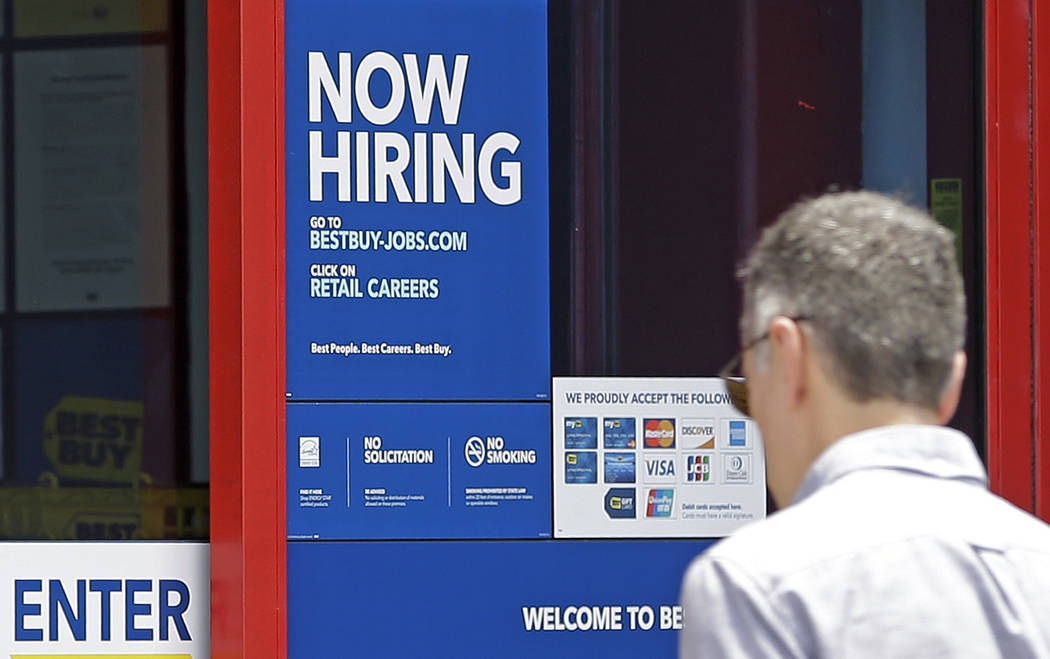COMMENTARY: Right-to-work law boosts the Nevada economy
Nevada’s right-to-work is simple: It means no worker can be forced to join a union or pay union dues to get or keep a job. It’s basic common sense. And given the history of Big Labor’s power in Nevada, some find it surprising that the state’s had a right-to-work law for 66 years.
Right now, millions of workers around the country are forced to pay dues — or be fired — because they have the misfortune of being located in one of 23 states that do not have a right-to-work law. And every year, these workers cough up billions of dollars in forced union dues to union bosses just to have a job and feed their families.
This is just plain wrong and un-American.
According to a recent Gallup Poll on the right-to-work issue, roughly 80 percent of Americans believe workers shouldn’t be forced to pay union dues just to get or keep a job.
But Nevada’s right-to-work law isn’t just about freedom. It has also helped the economy.
There is a reason Tesla’s Gigafactory is located in Nevada and not California. A nationwide 2017 survey of business leaders conducted by Chief Executive magazine found that, by a 2-to-1 margin, CEOs prefer adding jobs in right-to-work states over other states.
Business owners correctly view states that have passed right-to-work laws as being more welcoming and business-friendly than high-tax, forced-dues states such as California. That is why federal Bureau of Labor Statistics data show that from 2013-18, factory employment growth in Nevada was more than three times greater than in Western forced-union states such as Colorado, Oregon and Montana.
But the right-to-work advantage in job growth isn’t confined to Nevada and the Western states. In fact, in the past decade, total employment for right-to-work states grew twice as much as it did in forced-unionism states.
The companies providing those jobs have been fleeing the high costs and high taxes of California and other forced-unionism states for the good jobs and relatively lower cost of living in Nevada. And those jobs that right-to-work states are adding are high-paying jobs. In fact, when cost of living is taken into account, workers and other residents in Nevada take in almost $1,000 more per year in disposable income than Californians and more than $6,000 more than residents of forced-unionism Oregon.
With lower disposable income and fewer job opportunities, it’s easy to see why welfare dependency in Western states without right-to-work laws is nearly twice as high as in Nevada.
So from both a moral and economic perspective, fighting forced unionism is clearly the right thing to do. But even as five states have passed and implemented new right-to-work laws since 2012, Nevada union bosses are scheming to bring forced unionism back to the Silver State.
They want the power to fire any worker who refuses to pay them dues, no matter the cost in freedom and jobs. After all, if they succeed in gutting Nevada’s right-to-work laws, it means tens of millions of additional dues dollars per year in their pockets.
In coming legislative sessions, Nevada lawmakers must reject this union boss power grab, and choose what’s morally right, economically beneficial and supported by a more than 4-to-1 majority of their constituents: Keeping union membership and financial support strictly voluntary by leaving Nevada’s right-to-work law alone.
Mark Mix is president of the National Right to Work Legal Defense Foundation and National Right to Work Committee.




























